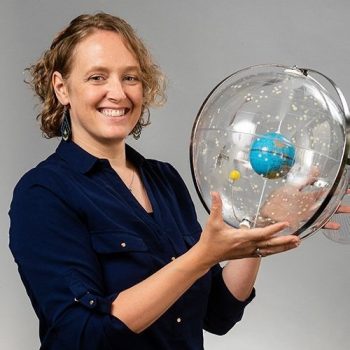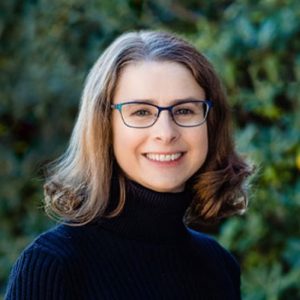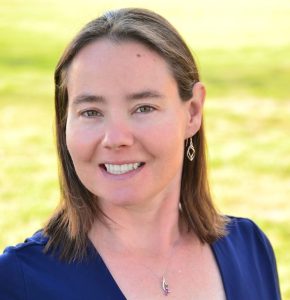People
Our websites are in the process of being updated. A more detailed list of current and past researchers will be available at the main Follette Lab website once it is completed. Below is an incomplete list of researchers for the QuaRCs project.
Lead Investigator
Dr. Kate Follette is an assistant professor of Astronomy at Amherst College and the Principal Investigator of the QuaRCS study, which was begun as part of her dissertation work at the University of Arizona. She is a former K12 math/science educator, and believes strongly that the purpose of introductory science courses for nonmajors extends beyond simple “science appreciation” (as interesting as science is!) to the instillation of real world skills. These include the ability to tell science from pseudoscience, to reason numerically, estimate, and analyze quantitative information. Kate taught general education astronomy courses as an adjunct instructor at Pima Community College from 2009-2014. Her science research focuses on the discovery and characterization of extrasolar planets and the disks of gas and dust from which they form.
External Collaborators
Dr. Erin Galyen (né Dokter) is an associate professor of practice in the Office of Instruction and Assessment at the University of Arizona, where she serves as the Coordinator for the Certificate in College Teaching program, and as adjunct faculty in the Agricultural Education department. She has taught general education astronomy courses as adjunct faculty at San Diego State University, Grossmont College, Southwestern College, and Pima Community College. Her research and teaching interests revolve around educational development, cross- disciplinary learner-centered pedagogies, and active learning spaces.
Dr. Sanlyn Buxner is an assistant research professor in the department of Teaching, Learning and Sociocultural Studies at the University of Arizona. She teaches introductory science and research methods courses and supports institutional assessment of graduate and undergraduate programs. Her research includes examining science literacy and quantitative literacy in undergraduate science students and studying the impact of research and industry experiences for K12 teachers on classroom practice and student outcomes.



Student Researchers and Collaborators
Catherine Sarosi, 2022
Vanessa Farooq, 2024
Ian Husler, 2023
Tracy Huang, 2023
Lovemore Nyaumwe, 2023
Muhammad Ahsan Tahir, 2024
Dasha Asienga, 2024
Kevin Dai, 2025
Wanting (Sherry) Jiang, 2025
A’Cora Hickson, 2025
Ephrata Getachew, 2025
Daniel Jang, 2026
Shinsaku Kataoka, 2026
Pranjal Chalise, 2026
Huichen (Will) Wang, 2023
David Dang, 2023
Michael Xu, 2025
Sam Hodges, 2023
Mary Prather, 2023e
Chinedu (Chris) Chukwura, 2022
Michelle Contreras Catalan, 2025
Lorraine Oloo, 2023
Syeda Zahra Shah, 2022
Malyaka Imran, 2022
Derrick Newberry, 2021
Justin Ahwah, 2021
Chloe Wohlgemuth, 2022
Soon Young Shimizu, 2020
Kostas Gobakis, 2020
Heather Scott, 2021
Nicholas Carolan, 2021
Camilo Ortiz, 2020
Dickson Nakhone, 2022
Amalia Cruz, 2019
Maggie Shea, 2019
Lesley Zheng, 2021
Ilija Nikolov, 2020
Jonah Gilbert, 2019
Eugene Melnyk, 2021
Brendan Seto, 2018
Abdoulaye Sanogo, 2018e
Advisory Board
Directs the Quantitative Reasoning (QR) program at Bowdoin College, is past Chair of the Center for Learning and Teaching, and is a Senior Lecturer in the Mathematics Department. He is the past President of the National Numeracy Network (NNN 2013 – 2019), and a past chair of Special Interest Groups of the Mathematical Association of America (SIGMAA-QL, 2010-12). He has a QR textbook in its second edition, published in 2019 with Pearson, Thinking Quantitatively: Communicating with Numbers, with blog https://thinkingquantitatively.wordpress.com/ . Eric has given talks and led workshops on the topics of QR Across the Curriculum, Creating a QR Entry Point Course, Writing with Numbers, QR Assessment, and Running a QR Program; and has served on review teams of QR programs. Eric was the Principal Investigator for an NSF TUES Type I grant (2012-14), Quantitative Literacy and Reasoning Assessment (QLRA) DUE 1140562. This collaborative project builds on Bowdoin College’s QR instrument which is used for advising purposes and is available to interested schools. Prior to coming to Bowdoin, Eric led the development of a Masters in Numeracy program for K-12 teachers at Alfred University as an Associate Professor of Mathematics and Education.
Is a retired Professor of Geosciences, Director of Faculty Development and Director of Educational Assessment from University of Wisconsin at Platteville, University of Colorado at Denver, Idaho State University and two California State University campuses. He now serves as an external mentor for STEM and Education faculty at The University of Wyoming. Ed served as the team leader of the ten faculty from four campuses that constructed and validated the Science Literacy Concept Inventory (SLCI). He now heads a second team of eleven researchers from eight institutions that currently employ the SLCI for conducting research on the relationships of metacognitive self-assessment to the success of undergraduate students’ learning. He remains active as a lead researcher publishing in Numeracy, Journal of Microbiology and Biology Education, a regular columnist for National Teaching and Learning Forum and Improve with Metacognition, and as a presenter in the annual and regional meetings of the AAAS, The American Psychological Association, The American Association of Behavioral and Social Sciences, and the National Numeracy Network.
Is an assistant research associate in Biology Education Research at the University of Arizona, with a focus on using and assessing model-based inquiry as a platform for helping students build scientific thinking skills and an appreciation for the nature of science, as well as their own identities as developing scientists. Between August 2011 and July 2014, she worked with a team to build, implement and assess a revised introductory biology curriculum that was demonstrated to improve students’ ability to use quantitative skills in biological contexts without compromising their learning of biology concepts (Hester et al. 2014).
Grew up in Argentina. She is an Associate Research Professor of Mathematics, the Director for the Center for University Education Scholarship (CUES), and a Founding Member of the STEM in HSI Working group at the University of Arizona. Guada’s current work brokers intersectional spaces for institutional change in university teaching and learning, including transforming STEM education at HSIs. Trained as a mathematician, Guada has been part of many K-12 and undergraduate initiatives which inform her current work. They include: the writing of recommendations for deploying active-learning practices in mathematics, assessing the impact of active-learning pedagogies on conceptual mathematics learning, and the establishment of cross-institutional faculty collaborations for streamlining the transition from community colleges to the university. Guada is actively involved with local, national, and international organizations committed to growing equitable practices in public schools, higher education, and STEM professions.